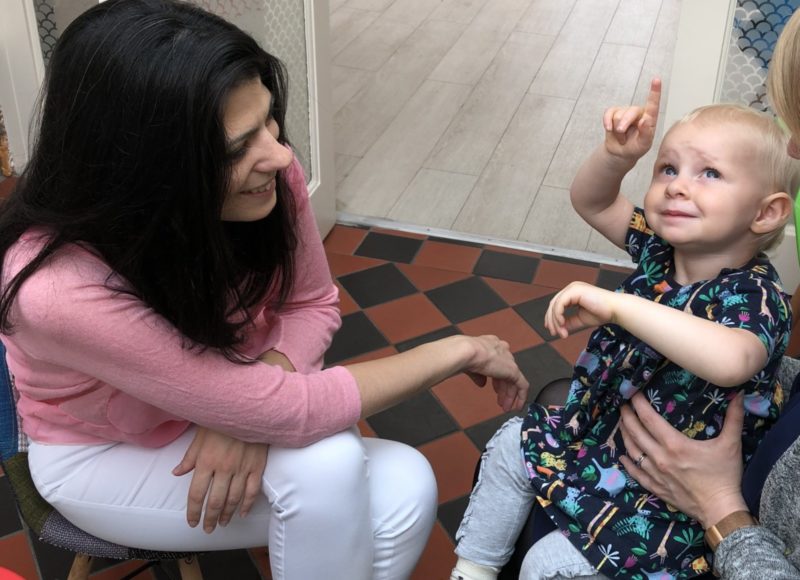
Many of the families who we are speaking to are seeking reassurance and want to hear the sound of another human voice other than a family member. The families are currently concerned about being connected to people in the outside world and they are finding it difficult to get shopping and do the things they would normally do, and don’t want in any way to bring COVID-19 to their vulnerable child or young person.
At this critical time the support we are able to provide to families is more necessary than ever. Our family services team have very quickly adapted to providing a virtual service enabling this critical support to get to the people that need it.
Our team has been busy calling vulnerable families daily, helping families’ access priority shopping hours and delivery slots, arranging volunteers to pick up prescriptions and essential shopping and supplies, creating a guide of activities and things to do at home, helping families to understand the restrictions and how it affects them as well as essential emotional and well-being support.
We have also been keeping parents up to date with social stories about COVID-19 and helping older children in the household to deal with the mental stress that is affecting many of them. We have been giving parents ideas as to how to engage them to talk about their fears in a safe space as many don’t want their parents to go out to shop and feel that they have in some way brought the disease into the home. They have also been helping parents with their child’s hospital passport and signposting to the government and NHS websites. Our family support team are proving to be a familiar face that is offering help and support in this difficult time.
Here are some examples of how we have been supporting families:
Mr H is an elderly carer of his 21 year old daughter who has a severe learning disability and epilepsy. He is a single parent with no support from surrounding family or friends. His daughter does not receive any support from adult social care.
The family service team have been making daily contact with him, providing on going emotional support as well as ideas about how to keep healthy and active while at home.
He is not able to leave his daughter unattended in the home, nor is he able to take her with him as she is shielding. This has meant it has become increasingly difficult for him to leave the house. We were able to refer him for support from Westminster City Council. Unfortunately, as this was over the Easter weekend, he had yet to hear from them after one week. We contacted the council again and were able to move him to the top of the priority list, allowing him to have grocery shopping delivered the next day.
A few days later, he let us know that he needed prescriptions to be picked up for both him and his daughter but the pharmacy that they use is not operating a delivery service. We then contacted multiple organisations until we were able to find a volunteer to pick up and deliver the prescriptions on the same day.
We continue to keep in touch with him regularly through the week.
Ms D is a single parent of a 3 year old with autism. The family service made contact with her after a referral from a local speech and language therapist.
Ms D had been unable to leave the house since the new government guidelines were put in place, as her son’s behaviour is very difficult to control out in the community. He is not able to understand social distancing rules, nor is he able to wait in the long queues for the supermarkets.
She has only recently moved to the area and therefore does not have a local support network. She was becoming increasingly concerned over how to access food supplies and activities to keep her son engaged in the home.
The family worker sent her a document with a list of local support organisations, as well as a document with a list of activities that can be done in the home to keep her son engaged and learning.
We also referred her details to the council, to put her in contact with a volunteer who can help her with getting the essentials she needs without having to leave the house.
We continue to check in with her once a week, making sure she is able to access any support she needs.
Alexandra our Portage worker has been doing Skype and WhatsApp video sessions with her families. These sessions are proving to be really useful and helpful to families. She is combining PECS (a picture communication system), Portage and is finding on line resources to support the families learning together with their child. Some parents were initially sceptical about how these sessions would help them but now they really look forward to their weekly session with Alexandra as it is contact with the world outside their home and gives them ideas to help their child learn.

One particular family has a baby boy of 8 months with Down’s syndrome and when Alexandra first met them, he was unable to sit up to play unaided. Alexandra has been helping him with sensory integration exercises such as balloon kicking so that he is able to interact with his environment; and this has helped to develop his muscle tone. She has also been working on getting him to sit between his parents’ legs and to roll a ball to his mother/father, which has helped develop his backwards and forwards motion. He has become more active and engaged, is now able to keep eye contact and is responding more to his parents. Alexandra is working on his mobility and engagement and his parents are really pleased with how far he has come and the progress he is continuing to make.